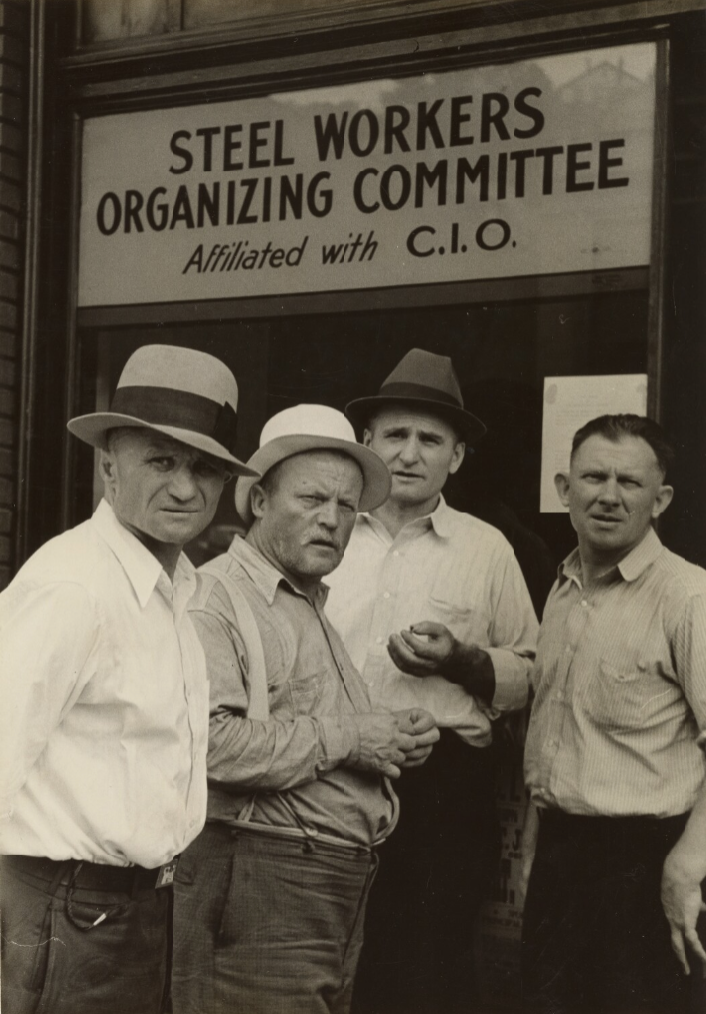This is the third in a series of essays I’ve written on time. You can view a list of all of them on the first essay.
In my last post, I wrote about the dominance of work temporality over every aspect of our lives and the push toward acceleration and overwork. What I find funny/sad is that in the face of untenable to-do lists, we often engage in self-blame and look for ways that we can become more efficient in getting our work done. Of course, the problem must be us. We’re simply too distracted, too disorganized, and not good at prioritizing (that’s not to say that some people don’t legitimately have challenges with these things, but we as individuals are not responsible for the systemic problems in our libraries re: overwork). Whether we’ve adopted time-blocking, Kanban boards, Pomodoro timers, dot journals, David Allen’s 43 folders, or even “eat the frog” (yes, really), the problem isn’t so much with how we work as the ever-increasing pace of our organizations and their never-ending push for more. But there are so many productivity pundits who will sell you a can’t miss method for taming your physical and mental clutter and bulldozing your to-do list. Is the best solution to a systemic problem ever really an individual one?
Modern productivity literature was born out of the field of scientific management from the turn of the 20th century (in her book Saving Time, Jenny Odell actually ties it further back to slavery, quoting a letter from George Washington who wrote about how wasteful it would be to not work slaves enough, but how it’s also wasteful to work them so much so that they become hurt — nope!). Scientific management theorists like Frederick Taylor and Frank and Lillian Gilbreth did time and motion studies and other experiments to find the most efficient and safe ways to do a great variety of manual labor jobs, including housework. Their prescriptions included elements such as the design of the workplace, the equipment used, the movements of the individual, and how long each task should take down to a fraction of a second. Scientific management was premised upon the notion that all work could be perfected and that there truly were methods that would allow each employee to make the very most of their time. It was also premised on the idea that a single method would work for every worker doing the same job, as if we were all just interchangeable widgets.
Scientific management was designed for blue-collar routinized jobs. The assumption of white-collar jobs, as Peter Drucker often wrote, was that for knowledge workers to be effective, they would have to be able to exercise freedom around how they prioritized and got their work done. That freedom and autonomy turned scientific management into “productivity,” with methods (often variations on common themes) that promised, when properly applied, to allow workers to get more done in the same amount of time. Productivity experts like Drucker, Brian Tracy, David Allen, and Cal Newport each offered their own slightly unique systems for managing tasks, incoming information, and requests. Productivity has become its own self-help genre and books, systems, and apps abound that promise to help workers to use every single moment of their time to its greatest purpose. In her book Counterproductive, Melissa Gregg writes about how the rhetoric of productivity mirrors the rhetoric of athleticism. Productivity becomes about training ourselves, becoming more disciplined, and finding ways to do things faster and better than others; essentially “render[ing] all colleagues competitors” (15). I love what L. M. Sacasas wrote in his newsletter, The Convivial Society (highly recommended!), about how our society–
privileges efficiency and tempts us with the promise of time-saved for the sake of some nebulous higher purpose, a human being is valuable only to the degree that they become sites of automated consumption and on-demand productivity. And the order that demands this from us is never satiated. For its purposes, you will never purchase enough or produce enough. It’s a self-perpetuating engine of desire for what it alone can offer.
Productivity literature is focused on the perfection of the self and plays into our culture’s focus on optimization (to what end?). If we are determined and strong enough, we can conquer our workloads. And if you can’t keep up with your work – if you can’t prioritize and get things done – the responsibility is your own. Maybe you need a better system. Maybe you need to work harder. Peter Drucker’s vision was for all workers to manage their own productivity, and we’ve seen that the result is that each individual is expected to adopt or develop our own systems for keeping up and getting things done and we are judged as individuals for our productivity. Yet in most workplaces, we are far from isolated actors and our productivity is often bound up in the productivity of others with whom we work. Most knowledge work is, to some extent, collaborative. Gregg argues that this erasure of our collectivity is intentional:
Time-management training has the effect, if not the function, of obliterating recognition of collegial interdependence in contemporary workplaces. Fitting its neoliberal moment, productivity’s inward focus further entrenches the erasure of collective thinking that the first efficiency engineers sought to accomplish. (54)

In 2020, computer scientist and productivity pundit Cal Newport wrote in the New Yorker about how personal productivity systems like David Allen’s Getting Things Done have failed the modern worker because they are enacted at the individual rather than the organizational-level. As someone who hates blaming individuals for systemic problems, this caught my attention. Newport suggests that we need to work to find solutions to problems of productivity at the organizational level (“The Rise and Fall of Getting Things Done”). He thinks the answer is finding ways to routinize certain knowledge worker tasks. While I agree with him that individual solutions are bound to fail in the face of a collective/systemic problem, I’m even more concerned with the idea of organizations imposing productivity systems on workers. I can imagine organizations adopting one-size-fits-all solutions that harken back to the scientific management movement (Newport himself writes about “an optimal sequence of actions”) and ignore the fact that we are not all widgets. A “sequence of actions” that works for one worker may not work for another or may not work in a particular context. Any such system will also likely increase management surveillance of workers. I’d like to believe there are options beyond the individualism of most current productivity systems and the “top-down interventions” Newport suggests. If the problem is collective, perhaps the solution also should be determined collectively rather than paternalistically imposed from above.
I think our society’s current obsession with productivity is a symptom of the anxiety and precarity of our current moment. When we feel out of control in so many aspects of our lives, it can be a balm to be able to exert control over something, but productivity is a false idol. While productivity is ostensibly about prioritizing our work, completing tasks regardless of import can become an end in itself. It feels good to check tasks off our list or to move emails into different folders so you can achieve Inbox Zero. It can give us a sense of purpose, control, and accomplishment even when very little of import is actually being accomplished and when we have very little control over our working conditions. It can distract us from questions of whether we are doing the right things; our most meaningful work. Melissa Gregg puts it well in Counterproducitive:
Personal productivity is an epistemology without an ontology, a framework for knowing what to do in the absence of a guiding principle for doing it. The meaning produced by productivity is the aesthetic pleasure of pure order, a method in which to do things so that they appear superficially manageable. Such a practice erases any need to question the overall structure determining which things are important, because if we spend enough time choreographing what should get done, there is no need to deal frankly with why. (98)
Productivity is not just about looking good to our bosses; being busy can help us convince ourselves of our worthiness. It can distract us from existential dread over our sense of precarity. I remember being in a previous job where it seemed like there was an informal competition to be the busiest. People would “complain” about how much they had on their plate or how many meetings they had that day or week, like it was a badge of honor. That’s because it is. Bellezaa, Paharia, and Keinan’s (2017) research suggests that busyness in the United States is considered a status symbol. They posit that like luxury goods, people who appear busy appear to be more important because their time is scarce and found in their study that “observers infer that the busy individual possesses desirable human capital characteristics, such as competence and ambition” (121). In comparing the status scores given to busy and non-busy people between participants in the United States versus European study participants, they found that Americans considered less busy people to be of lower status while the inverse was true of the Europeans. Europeans believed that a person with more leisure time likely had higher status, so leisure, rather than busyness, was seen as aspirational. That similar findings to the U.S. have been seen in Britain – a country similarly impacted by neoliberalism over the past 40+ years – suggests how deeply workers in the U.S. and Britain have internalized the values of neoliberalism versus Western countries more focused on social welfare (Gershuny).
Given that people are at least somewhat interdependent in most organizations, it’s clear to see how this push to perform busyness can create trickle down effects for all workers, regardless of how they personally view busyness. Someone looking to take on lots of projects will likely create work for others in their organization, either in project creation or maintenance. Add in precarity – whether real or perceived – and you have a toxic recipe for overwork. And this normalization of overwork is, in most cases, not likely to be opposed by managers who benefit from the increased output. Anne Helen Petersen writes about how over-emailing became something everyone in the workplace needed to do to demonstrate their commitment to the job:
And even though everyone resents it, once in place, the framework of over-emailing demands participation: over-emailing becomes the way you show you’re a team player and evidence of your commitment. When everyone is spending their nights filing through their inbox to ready themselves for more email-generating content during the day, to opt out of the cycle is to position yourself as lazy or less committed. Objectively speaking, checking your emails — and sorting and responding to them — in every crevice of the day is a compulsive, fucked up behavior. But we’ve normalized it thoroughly. It’s not burnout behavior; it’s not something workaholics do. It’s just working an office job.
We can blame technology for our problems, but the real problem is that we’ve created absolutely ridiculous norms around availability and speed of response that we’re constantly interrupted by email, Slack, Teams messages, texts, etc. The good news: those norms can be changed.
In spite of the increase in busyness, the most common reward for high productivity is a higher workload rather than pats on the back and raises. In a study that looked at how work is assigned through six separate research experiments, researchers discovered that those who exhibit strong productivity and self-control tend to be assigned more work because employers and family members assume it is easier for them, though they also found that the work required just as much effort for all research participants (Koval, VanDellen, Fitzsimons & Ranby). In one experiment, “a survey of more than 400 employees, they found that high performers were not only aware that they were giving more at work—they rightly assumed that their managers and co-workers didn’t understand how hard it was for them, and thus felt unhappy about being given more tasks” (Lam). This is a recipe for burnout, yet so many of us believe that our hard work and grinding at our jobs will be rewarded.
Our phony meritocracy has spawned an achievement culture where no amount of work or achievement is ever really enough. We’re pushed to perform busyness to both feel secure in our jobs and to feel like worthwhile human beings. Productivity literature, even that focused on doing less like Cal Newport’s most recent book Slow Productivity (which I will critique in my next essay), are focused on individual solutions when these problems are systemic, and encourage us to ignore collective solutions. An individual solution may help you better get through your to-do list, but it won’t change the underlying pressure to always be doing more. If you have job security, an individual solution may help you to truly lessen your workload and improve your own work-life balance, but it does nothing for those in your organization in more precarious positions who will likely be even more burdened with work as you use your privilege to work less. My next essay will explore the slow movement and constructions of productive/unproductive work, critique Newport’s notion of slow productivity, and discuss the necessity of collective solutions to these thorny problems.
Bellezza, Silvia, Neeru Paharia, and Anat Keinan. “Conspicuous consumption of time: When busyness and lack of leisure time become a status symbol.” Journal of Consumer Research 44.1 (2017): 118-138.
Gershuny, Jonathan. “Busyness as the badge of honor for the new superordinate working class.” Social Research: An International Quarterly 72.2 (2005): 287-314.
Gregg, Melissa. Counterproductive: Time Management in the Knowledge Economy. Durham North Carolina; London, Duke University Press, 2018.
Koval, C. Z., VanDellen, M. R., Fitzsimons, G. M., & Ranby, K. W. (2015). The burden of responsibility: Interpersonal costs of high self-control. Journal of Personality and Social Psychology, 108(5), 750.
Lam, Bourree. “Being a Go-Getter Is No Fun.” The Atlantic, 22 May 2015, www.theatlantic.com/business/archive/2015/05/being-a-go-getter-is-no-fun/393863/.
Newport, Cal. “The Rise and Fall of Getting Things Done.” The New Yorker, 17 Nov. 2020, www.newyorker.com/tech/annals-of-technology/the-rise-and-fall-of-getting-things-done.
Petersen, Anne Helen. “How Email Became Work.” Culture Study, 25 Oct. 2020, annehelen.substack.com/p/how-email-became-work.
Sacasas, L. M. “Waste Your Time, Your Life May Depend On It.” The Convivial Society 4.8 (2023 May 12). https://theconvivialsociety.substack.com/p/waste-your-time-your-life-may-depend







I’ve really appreciated this series so far! Jenny Odell’s books came along at the right time (ha) for me, so I’ll be looking up Melissa Gregg’s work. I’m curious to hear your thoughts about collective solutions in part 4.
Same (re: Jenny Odell’s work) though I first discovered her through the talk she gave that led to her book deal to write How to Do Nothing https://www.youtube.com/watch?v=mNRqswoCVcM. I discovered it in 2018 just at the right moment when I was beginning to question my almost mindless career treadmill running (towards what???) and it was just what I needed to hear. Gregg’s book is fantastic; if you like Odell I think you’ll love Gregg (she similarly pulls from a deep and diverse well of thinkers).
I can’t wait until the next installment! I’m about to finish Slow Productivity and I’m eager to read your thoughts. I’ve struggled on and off over the years with, on the one hand, trying to overengineer a personal productivity system and, on the other, trying to redeploy that energy to making system changes in my organization that would make personal “workarounds” less necessary. Recently, we’ve been having a conversation at MPOW about shared productivity norms and the only thing that’s commonly shared is that everyone does it differently. I’m frustrated by my/our own inability to find common ground.
I imagine it would be difficult to find common ground, though even talking about it is more than most teams do. I wish we had more conversations together about how we individually plan, prioritize, and the systems we use to keep organized. I was surprised to find that a colleague of mine had no system for keeping track of to-do’s (which is why he was missing many) and just telling him about the native Google Task manager in our email changed the way he worked. I don’t imagine we’ll ever be in lockstep (nor do I think we should be), but talking about these things that are pretty invisible to everyone but us could really be of benefit to our colleagues and ourselves. For me, I’d be most interested in finding common ground about how we prioritize; how we choose what we work on first or devote the most time to or put on the backburner.
Thanks for this series, Meredith! I’m eager to see what you discuss in the next installment. especially because I’ve read Slow Productivity and some of the other texts you’ve been mentioning.
The high productivity just equals higher workload observation really resonates. I feel that when I come across as organized and in control, I just get asked to pick up any slack, whether or not it makes sense or is even sustainable.
Yep! And the pace we set is the pace people expect of us. It has definitely been a challenge for me to move from overwork toward a more humane pace at work and it required a lot of boundary-setting and “no’s.” I’m lucky that none of my colleagues have held my choices against me, but I still get asked to do quite a few things that I’m not longer willing to do. It’s getting better though!
Pingback: Lesetips – Klaus Jørans skriblerier
Pingback: Time: It doesn’t have to be this way | Information Wants To Be Free